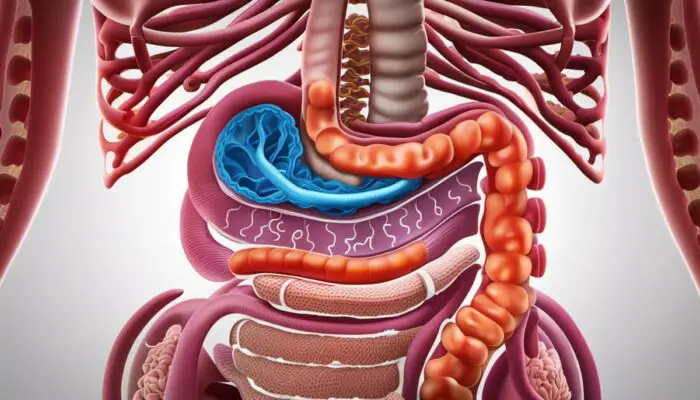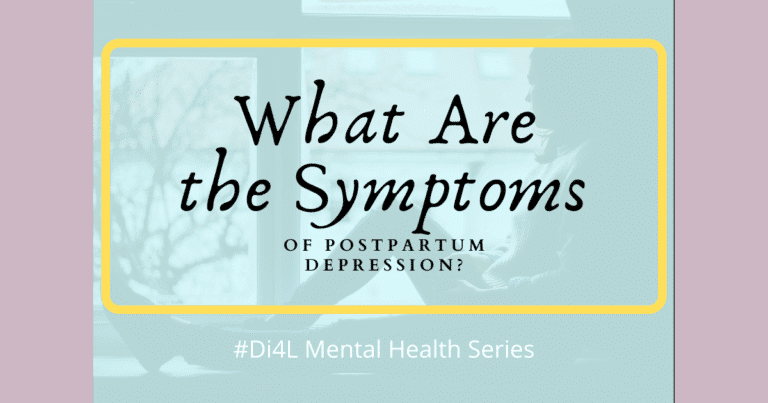It is remarkable how our bodies are finely tuned machines in which every element plays a pivotal role in optimal functioning. One such element is Stomach Acid, an integral player in our digestive system. Regarded by some as the body’s unwanted corrosive agent, this wondrous liquid residing in our stomachs carries out several essential tasks that contribute significantly to our overall health.
Yet, imbalances in stomach acid can lead to a host of discomforts, including an occurrence termed ‘Bloating’. This essay delves into the complex world of stomach acid, explicating its role and importance in our bodies, focusing in particular on how reduced levels can create digestive dilemmas.
With a thorough understanding of these processes, one is better armed to address the uncomfortable issue of low stomach acid and bloating and, more so to gain an appreciation of the holistic approaches towards digestive wellbeing that are available.
So with this in mind let’s dive in and take a look at this>>>
Low Stomach Acid and Bloating: How Are These Linked
Many will know what bloating is. It is a fairly common occurrence for people if they eat too much. Anyone who drinks beer will I would guess most definitely know but what some may not is that the cause may be due to low stomach acid preventing the usual process of digestion.
This is not always the case but still, let’s take a look at this…
Understanding Stomach Acid
Stomach acid, medically known as gastric acid, is a critical element of the human digestive system. One of its most important roles involves breaking down the food consumed all the way to the molecular level so that it can be absorbed by the small intestine.
Furthermore, stomach acid also acts as a first line of defense against foreign pathogens, including harmful bacteria and viruses that typically enter the body with foods.
Stomach acid comprises hydrochloric acid, potassium chloride, and sodium chloride. This potent blend helps kick-start digestion by denaturing proteins and making them more accessible to the stomach enzymes that break them down further.
Additionally, stomach acid also assists in the absorption of essential nutrients, particularly Vitamin B12, iron, and calcium. Thus, maintaining appropriate levels of stomach acid is vital to the body’s overall health.
Keeping Stomach Acid Levels Balanced
The stomach lining contains specific cells known as parietal cells that produce and secrete stomach acid. The release of this acid is carefully regulated by hormonal and nervous system responses, which either inhibit or stimulate acid production. The body’s need for digestion or protection from pathogens are two major factors that can trigger an increase in stomach acid levels.
Under normal circumstances, the body maintains a delicate balance between the production of stomach acid and the alkaline secretions that neutralize its corrosive effects.
Any disruption to this balance can interfere with the regular digestive system and result in a range of gastrointestinal disorders and conditions.
Implications of Low Stomach Acid
On one end of the scale, excessive stomach acid can lead to peptic ulcers and gastroesophageal reflux disease. Less talked about, but equally concerning, is the possibility of having too little stomach acid, a condition called hypochlorhydria.
Although it’s far less known than its opposite – hyperchlorhydria, which involves an excess of stomach acid – hypochlorhydria can cause serious digestive issues.
Since gastric acid plays a significant role in the breakdown of food, low levels of the acid may result in incomplete digestion. This can lead to nutrient deficiencies, despite maintaining a balanced diet, owing to the inadequate absorption of nutrients.
Low Stomach Acid and its Relation to Bloating
Bloating, indigestion, and belching are common indicators of low stomach acid, a condition wherein the stomach acid isn’t sufficiently potent enough to efficiently break down food. The food then remains in the stomach, fermenting and consequently producing gas.
Simultaneously, this condition could also lead to a setback in production levels of pepsin, a key digestive enzyme, which ensures that proteins are digested properly. In the absence of adequate pepsin, proteins undergo fermentation in the intestines causing gas and bloating.
Thus, despite popular belief that acid reflux and bloating are always a result of an excess of stomach acid, it is equally important to acknowledge that low stomach acid can cause similar symptoms. Persistent symptoms should warrant a consultation with a healthcare professional to ensure an accurate diagnosis is determined.

Understanding Bloating
A Closer Insight into Bloating
Bloating manifests as a swelling or expansion in your abdominal region that may often result in a sensation of fullness or constriction. It is frequently associated with an array of conditions related to the digestive tract, including overeating, food intolerances, and various stomach and intestinal disorders.
Bloating can be mild and transient for some people, whereas it may cause significant discomfort and disruption to daily activities for others.
The primary cause of bloating is an overproduction of gas in your stomach, which tends to occur during the food digestion process. Some food items, such as lentils, beans, cabbage, onions, broccoli, and fizzy drinks, are more likely to produce gas during digestion.
Consuming food hastily or overeating can also result in swallowing excess air, culminating in bloating.
Signs and Symptoms
Bloating is often accompanied by other symptoms such as abdominal pain, discomfort, a feeling of fullness, or a visibly swollen abdomen. However, it’s worth noting that these symptoms might be occasional or continuous, mild or severe, depending on the individual case.
If you experience such symptoms frequently or they are severe, consult a healthcare professional for a thorough evaluation and to rule out any underlying medical conditions.
The Role of Stomach Acid
Stomach acid, referred to as gastric acid, plays an integral role in the digestion process. It aids in breaking down food, absorbing nutrients, and eliminating harmful bacteria that enter your body through food.
Having inadequate levels of stomach acid, a condition known as hypochlorhydria, can significantly impact this process, leading to multiple digestive problems such as bloating, belching, nausea, heartburn, and malnutrition.
Stomach Acid Imbalances
Stomach acid imbalances and bloating are closely linked. In cases of low stomach acid production, food isn’t broken down as effectively. This partially undigested food is then passed on to the intestines where bacteria break it down, producing gas as a byproduct.
Thus, low stomach acid can result in excess gas production, leading to bloating.
Moreover, low stomach acid can also promote the overgrowth of harmful bacteria in your gut. This can lead to a vicious cycle where the bacteria produce more gas, causing bloating and further compromising digestion.
The Link Between Diet, Lifestyle, and Digestive Health
Adopting healthier dietary habits such as eating a balanced, fiber-rich diet and sticking to regular meal times can enhance digestion and help prevent bloating. Likewise, simple lifestyle changes like decreasing stress levels, engaging in light physical activities, and avoiding smoking and excessive alcohol consumption can significantly improve your overall digestive health.
Taking probiotic supplements can also be beneficial in balancing gut bacteria, reducing unwanted gas production, and mitigating bloating.
If you presume you may be suffering from low stomach acid or if you find yourself frequently bloated, it’s crucial to seek advice from a healthcare professional. They can guide you on necessary lifestyle alterations, run further diagnostic tests, and recommend suitable treatment if needed.

Low Stomach Acid and Bloating – The Connection
The Complex Relation Between Low Stomach Acid and Bloating
Low stomach acid, also medically referred to as hypochlorhydria, can significantly impact your body’s digestive system and overall gut health. Bloating, a predominantly common issue arising from this condition, is characterized by the stomach being inflated with air or gas, leading to discomfort and a feeling of fullness in the belly.
Bodily Processes Resulting in Bloating
Initial digestion begins in the stomach, where proteins are broken down by the action of a strong acid. If the stomach doesn’t produce enough acid, the proteins will stay in larger pieces when they move into the small intestine. This can cause a variety of digestion problems.
For instance, when proteins are not adequately broken down, they can ferment in the gut, producing gas. This fermentation causes bloating and other symptoms like indigestion, constipation, or diarrhea.
Additionally, stomach acid prompts the release of digestive enzymes from the pancreas, which further aid in food breakdown. In low stomach acid conditions, this stimulation is compromised, leading to decreased enzyme production. As a result, food sits longer in the stomach, contributing to bloating and discomfort.
Other Gastrointestinal Challenges
Beyond bloating, low stomach acid can trigger a cycle of poor digestion. It may lead to the overgrowth of harmful bacteria in your gut, as the acid typically serves to destroy these bacteria. This imbalance can contribute to an array of symptoms such as nausea, abdominal pain, and even more severe conditions like irritable bowel syndrome (IBS) or small intestinal bacterial overgrowth (SIBO).
Furthermore, low stomach acid can hinder the body’s ability to properly absorb vitamins and minerals from the diet. Specifically, poor absorption of Vitamin B12, calcium, iron, and magnesium can occur.
Over time, this can lead to deficiencies that manifest in chronic fatigue, weak bones, anemia, and other health problems.
Lastly, hypochlorhydria might also lead to food allergies. Improperly digested proteins may find their way into the bloodstream. The immune system may respond to these foreign proteins, leading to allergic reactions.
Managing the condition of low stomach acid, or hypochlorhydria, often involves a combination of lifestyle adaptations and dietary modifications. The exact approach can however vary considerably depending on the root cause of the issue, highlighting the importance of consulting with a healthcare professional to decide on a tailored solution.
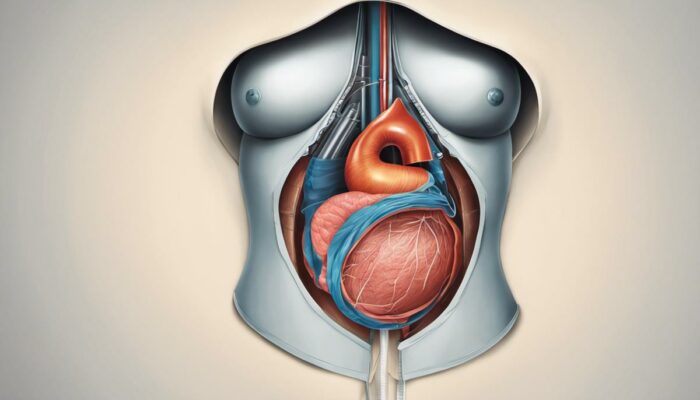
Identifying Low Stomach Acid
Identifying the Signs of Low Stomach Acid
Stomach acid, particularly hydrochloric acid, is a vital component of overall health. It not only facilitates the digestion process, but also safeguards against pathogens, assists in protein breakdown, and ensures the proper absorption of essential vitamins and minerals.
It is therefore vital to remain vigilant for signs of hypochlorhydria, a condition characterized by low stomach acid. Letting such a condition go unnoticed can adversely affect one’s well-being.
Symptoms Denoting Hypochlorhydria
Experiencing some common symptoms might hint at an issue of low stomach acid. Bloating, flatulence, and a sensation of fullness frequently after eating small portions can be significant indicators. Additionally, nausea, heartburn, diarrhea, or constipation might also point towards hypochlorhydria.
More complex signs can include brittle nails, hair loss, skin disorders like acne, and undigested food in stools, these generally indicate a long-term issue with stomach acid levels.
Understanding the Link Between Bloating and Low Stomach Acid
The correlation between bloating and low stomach acid is strongly significant. Bloating commonly occurs when the stomach struggles to break down foods, due to insufficient quantities of acid. This may lead to food fermentation in the stomach and gas accumulation, causing discomfort and distention in the abdominal region.
Potential Risk Factors
Certain risk factors could contribute to the development of low stomach acid. Age is a prevalent factor – as people get older, the production of stomach acid naturally decreases. Other health conditions like atrophic gastritis, H. pylori infection, and autoimmune diseases can potentially cause hypochlorhydria.
Chronic stress and poor diet can also contribute to the condition.
Diagnostic Tests for Hypochlorhydria
Several diagnostic tests exist to confirm the presence of low stomach acid. The Heidelberg test measures the acid levels in your system after swallowing a tiny capsule. Alternatively, the Gastro-Test assesses acidity by utilizing a special solution to induce burping. Blood tests might also be conducted to check for the presence of the intrinsic factor or parietal cell antibodies which, if absent, could indicate hypochlorhydria.
The Necessity of Medical Evaluation and Consultation
Fundamentally, it is vital to take these symptoms seriously and seek professional medical evaluation. Regularly experiencing symptoms of low stomach acid lays down the necessity to visit a healthcare provider for a correct diagnosis.
Self-diagnosis can potentially lead to improper treatment, exacerbating the situation rather than helping.
Recognizing the necessity of effective treatment
Once an individual is diagnosed with low stomach acid or hypochlorhydria, effective remediation typically involves using prescribed medicines or making dietary adjustments. In certain cases, supplemental hydrochloric acid may be suggested.
If left untreated, hypochlorhydria can result in nutrient deficiencies and consequent health issues. Therefore, rapidly identifying and resolving the problem is crucial to promoting overall health.

Management and Treatment Options
Understanding the relationship between low stomach acid and bloating
Hypochlorhydria, commonly referred to as low stomach acid, is a medical condition characterized by the insufficient production of hydrochloric acid in the stomach. This can disrupt digestion and nutrient uptake, often leading to symptoms such as bloating, excess gas, and discomfort following meals.
Dietary Changes
A common management method for low stomach acid and bloating is dietary adjustment. Limiting the intake of processed foods, sugars, and unhealthy fats while increasing whole foods, fruits, vegetables, and lean proteins can help improve digestion.
Incorporating foods rich in zinc, such as meat and legumes, may help stimulate stomach acid production. Probiotics, found in foods like yogurt and sauerkraut or as supplements, can also restore balance to gut bacteria, reducing bloating and associated discomfort.
Supplements
Stomach acid supplements, like Betaine HCL, can help to increase the level of hydrochloric acid in the stomach. Betaine HCL supplements may also include pepsin, a protein-digesting enzyme that works with stomach acid to break down proteins in food.
Other supplements such as digestive enzymes can assist with food breakdown and more efficient digestion, reducing the likelihood of bloating.
Medications
While antacids and proton pump inhibitors are common treatments for high stomach acid, they are generally not beneficial for hypochlorhydria. Instead, a form of replacement therapy where a patient takes hydrochloric acid (HCL) supplements typically takes place under the guidance of a healthcare professional.
This should be approached with caution since inappropriate use could harm the lining of the stomach.
Lifestyle Modifications
Lifestyle changes can also be an essential part of managing low stomach acid and bloating. Reducing stress levels, for example, through techniques such as yoga, meditation, and regular exercise, can lower the body’s sympathetic response, which may negatively affect digestion.
Drinking plenty of water, avoiding drinks during meals, and taking the time to properly chew food can also assist in digestive processes.
Holistic Approach
Adopting a holistic approach to managing and treating low stomach acid and bloating can be highly beneficial. This entails not only tackling the physical symptoms but also considering the emotional, social, and mental factors that could contribute to the issue.
It’s also crucial to understand that while these treatments can help manage symptoms, they are not a cure. Working closely with a healthcare provider who understands the need for a comprehensive approach is recommended to effectively monitor and manage the condition.
In the context of low stomach acid and bloating, the holistic approach could involve considering stress levels and mental health, as well as the physical symptoms. For example, mindfulness practices could be incorporated alongside dietary changes to help manage stress and improve overall digestive health.
Whatever treatment plan is decided upon, it is important for it to be monitored by a healthcare professional for safety and effectiveness. It is also important to prevent any potential complications from low stomach acid, such as malnutrition due to poor absorption of nutrients.

In Conclusion
Therefore, understanding the importance of stomach acid within the context of our overall health is imperative. Low stomach acid can bear significant repercussions, especially when this imbalance contributes to bloating or other gastrointestinal issues.
Moreover, identifying the signs of low stomach acid, steps for a proper diagnosis, and appropriate management or treatment options can certainly enhance one’s journey toward improved stomach health.
Remember, a holistic approach is key. Building awareness and taking responsibility for our body’s health, aligning our diet, lifestyle, and treatment options to ensure the digestive system functions at its best – these are quintessential non-negotiables towards achieving a greater, healthier, and bloating-free you.
I will finish up this article here but if you would like to read more check our LSA posts pages HERE<<
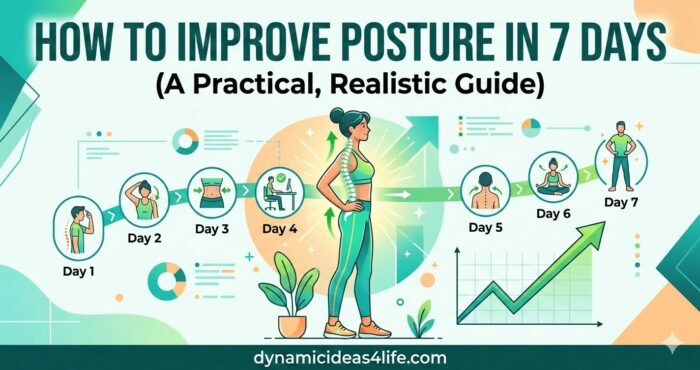

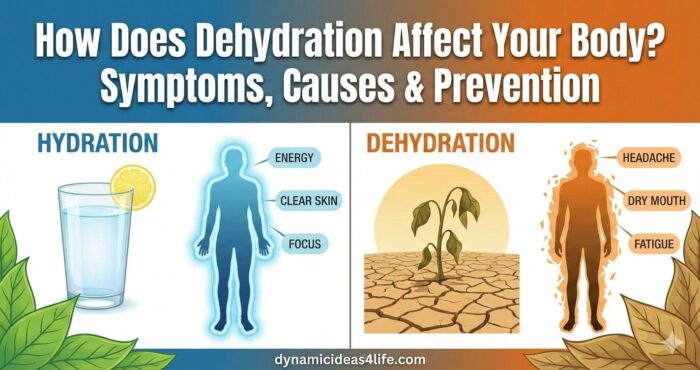



Anxiety and Depression BiOptimizers blood pressure supplements blood sugar control blood sugar support supplements cognitive function digestive enzymes Digestive Enzymes Supplement Digestive Health digital products Dr Sam Robbins Exercise Gut Health Gut Health While Travelling Health Tips for Travelling Healthy Living heart health HFL How To Lower Cholesterol insulin resistance joint health supplement Keto keto dieting Keto Diet Weight Loss leaky gut supplements leptin resistance Magnesium deficiency Matt Gallant mental health multivitamins Nootopia Nootropics Probiotics Probiotic Supplements reverse type 2 diabetes stress and anxiety stress relief vitabalance vitapost Wade Lightheart weight loss articles weight loss diet plans weight loss product reviews weight loss supplements weight loss tea





